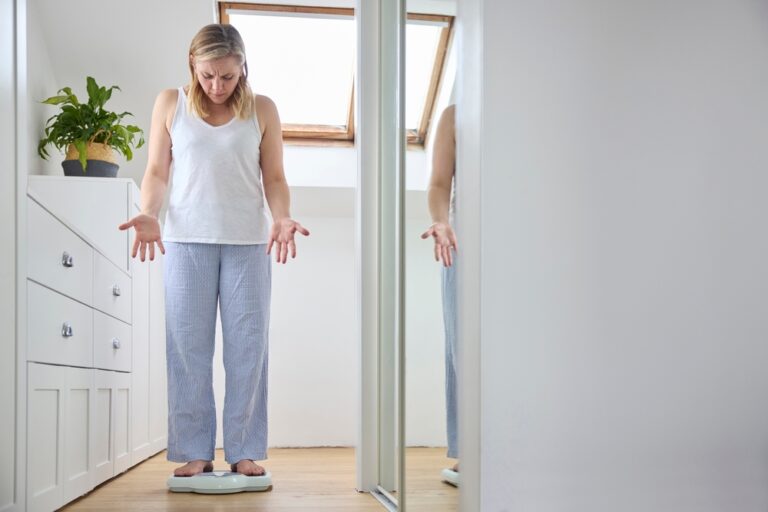
This article aims to answer the question "can CBD oil make you gain weight?" once and for all. There are a lot of concerns and confusions about weight gain and CBD oil. However, there is some evidence that suggests that CBD oil might even help you lose weight, not gain it!
If you're concerned about weight gain and CBD oil, this is the article for you. We've examined the evidence and explored whether CBD might help people lose weight and the results are intriguing to say the least. So, before you dismiss CBD as a potential ally in your weight management journey, keep reading! Let's start with the simplest question of them all, can CBD make you gain weight?
No, hemp-derived CBD products won't magically make you pile on the pounds! This confusion likely stems from the munchies – that feeling of increased hunger often associated with THC, another compound found in the cannabis plant. But CBD works differently.
Your body actually has a built-in system for regulating many functions, including appetite and metabolism – it's called the endocannabinoid system (ECS). We'll explore this fascinating system and how it might influence your body weight in more detail later. But both CBD and THC activate receptors in the endocannabinoid system. THC binds with the CB1 receptor among others. This is the one that causes a spike in the desire to eat. (the munchies) CBD also binds with this receptor but the outcome may be very different!
Gaining weight simply means your body is accumulating more mass. This can be muscle, water, or fat. Normal weight fluctuations throughout the day or even your menstrual cycle are totally normal and nothing to worry about.
However, if the scale keeps creeping up consistently, it's time to explore what might be causing it. Here are some common culprits:
Now, let's talk about metabolism. Think of it as your body's internal furnace, burning calories to keep you energised. A faster metabolism burns calories more efficiently, making it easier to maintain a healthy weight. Conversely, a slower metabolism can lead to weight gain even with moderate food intake.
It's also important to note the difference between weight loss and fat loss. While they're often used interchangeably, they're not exactly the same. Losing weight can involve losing both muscle and fat, while fat loss specifically targets those unwanted fat cells. We'll delve deeper into this distinction later, but for now, understand that managing weight gain often involves regulating both food intake and metabolism.
Taking CBD oil doesn't directly cause weight gain. But, as we'll explore further, it might indirectly influence your weight by affecting your appetite and metabolism – two key players in the weight management game.
Imagine your body has a built-in communication network – that's the endocannabinoid system (ECS) in a nutshell. This complex system plays a crucial role in regulating various bodily functions, including metabolism, appetite, sleep, and even pain perception.
The ECS works through a network of cannabinoid receptors, tiny protein structures found throughout the body. There are two main types:
Now, the ECS produces its own natural cannabinoids, called endocannabinoids. These interact with the receptors, sending signals that influence various functions. Here's where it gets interesting: CBD, the non-psychoactive compound in hemp, can also interact with these receptors, although to a lesser extent than THC (the psychoactive compound in marijuana).
Research suggests a potential link between CB1 receptors and fat storage. When activated, these receptors might promote the storage of fat in white fat cells, the type responsible for storing excess energy.
However, it's important to note that this research is primarily based on relevant animal studies. Human studies are still ongoing, and the picture is far from complete. CBD may also interact with other ECS pathways, potentially influencing appetite or metabolism in ways we don't fully understand yet.
The bottom line? The ECS plays a complex role in weight management, and CBD might influence it indirectly. While there's no clear evidence CBD directly causes weight gain, more research is needed to understand its full impact on the ECS and its potential to promote weight loss or help regulate appetite.
Remember how we mentioned THC and its munchie-causing effects? CBD interacts with the ECS differently. While THC and CBD both bind to CB1 and CB2 receptors, the outcome is very different. CBD doesn't trigger the increased appetite associated with marijuana use.
So, how does CBD potentially influence weight? The research is ongoing, but here's what we know so far:
There's a claim that CBD can convert white fat, often linked with chronic health issues like heart disease and diabetes, into brown fat, which may aid the body in burning calories more efficiently. A study from 2016 lends some support to this idea.
The study indicated that CBD could transform white fat cells into brown fat cells. White fat cells are basically stores of fat within the body, whereas brown fat cells actively burn energy and help you lose weight. While these findings are very promising, further human studies are required to confirm these effects.
CBD might also play a role in reducing the risk of metabolic disorders such as type 2 diabetes, high blood pressure, and high cholesterol. This is partly attributed to CBD's potential to act on receptors in the body that influence metabolism and food intake.
Studies have noted a possible reduction in total cholesterol in animal models with obesity, along with anti-inflammatory and antioxidant effects that could improve markers for liver health. This suggests that CBD could help mitigate some factors that contribute to metabolic disorders.
Contrary to THC, which is known to stimulate appetite, CBD does not appear to have the same effect. In fact, some studies suggest that CBD might help reduce appetite. This distinction arises because THC activates the CB1 receptor, which can increase food intake, whereas CBD might act as a CB1 receptor antagonist.
Although there's some animal research supporting the idea that CBD could reduce appetite, direct human studies are yet to provide conclusive evidence. This means while CBD could potentially play a role in appetite regulation, more research is needed.
Let's clear the air again: CBD oil won't magically add pounds to your frame! While the research on CBD and weight management is still evolving, here's what we've learned so far:
While directly aiding weight loss isn't a guaranteed effect, CBD oil offers other potential benefits that could indirectly support your goals.
Think about it: Chronic stress can lead to weight gain through the production of cortisol, a hormone that encourages fat storage. CBD could help reduce stress and anxiety, which might support better eating habits and more consistent physical activity.
Moreover, CBD may have anti-inflammatory and pain-relieving properties that could potentially benefit individuals with conditions or injuries resulting in chronic pain and hindering their ability to engage in physical activity. This could indirectly contribute to weight management efforts by promoting more movement and exercise.Ready to explore high-quality CBD oil for your overall well-being? CBD One offers a variety of products to suit your needs. Shop our selection today to find the right CBD oil for you and your goals. As always, consult with a healthcare professional before starting any new supplement regimen. Your journey towards wellness is just one click away!
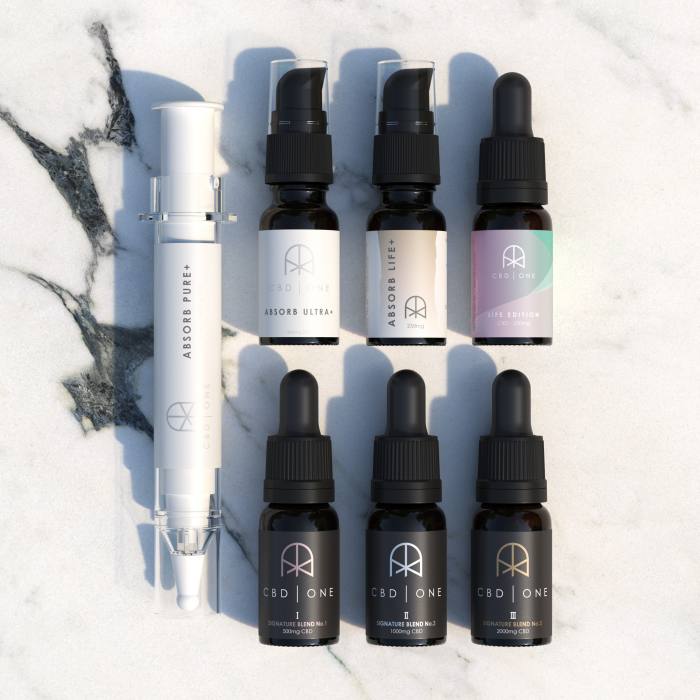

Bioavailability:?Bioavailability | 99% |
CBD content:?CBD content | 800mg | 1600mg | 4000mg |
Cannabinoid spectrum:?Cannabinoid spectrum | Full |
| Daily use: | Once daily |
Best for:?Best for | Powerful water-soluble option |
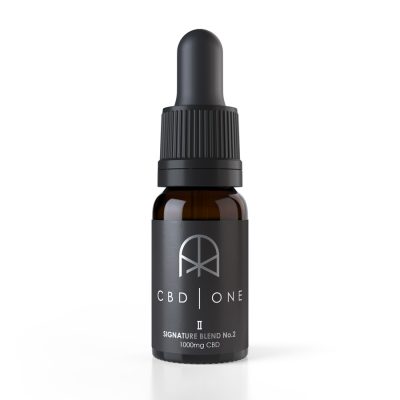
Bioavailability:?Bioavailability | 12 % |
CBD content:?CBD content | 1000mg | 2000mg | 5000mg |
Cannabinoid spectrum:?Cannabinoid spectrum | Full |
| Daily use: | 1-3 times |
Best for:?Best for | All round oil |
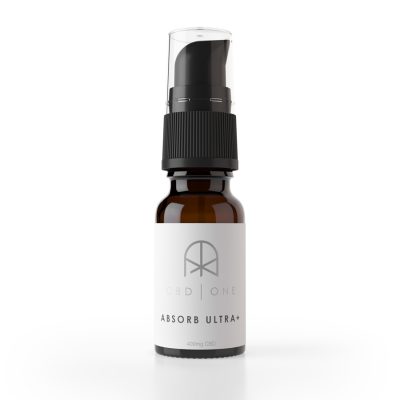
Bioavailability:?Bioavailability | 99% |
CBD content:?CBD content | 400mg | 800mg | 2000mg |
Cannabinoid spectrum:?Cannabinoid spectrum | Full |
| Daily use: | Once daily |
Best for:?Best for | Great all-rounder |
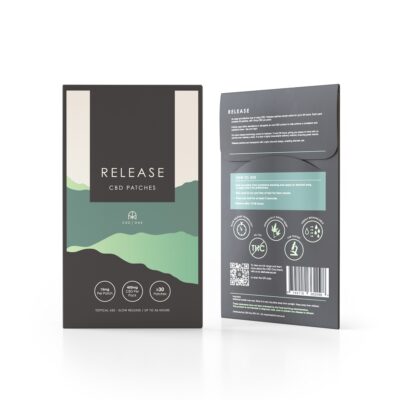
Bioavailability:?Bioavailability | 40%+ |
CBD Content:?CBD Content | 450mg | 900mg | 1350mg |
Cannabinoid spectrum:?Cannabinoid spectrum | Pure CBD |
| Daily use: | Once |
Best for:?Best for | Round the clock super-effective dosing |